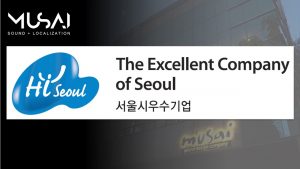[MUSAI] How to Choose the Best LSP to Guarantee the Successful Korean Voice-over for Your Game?
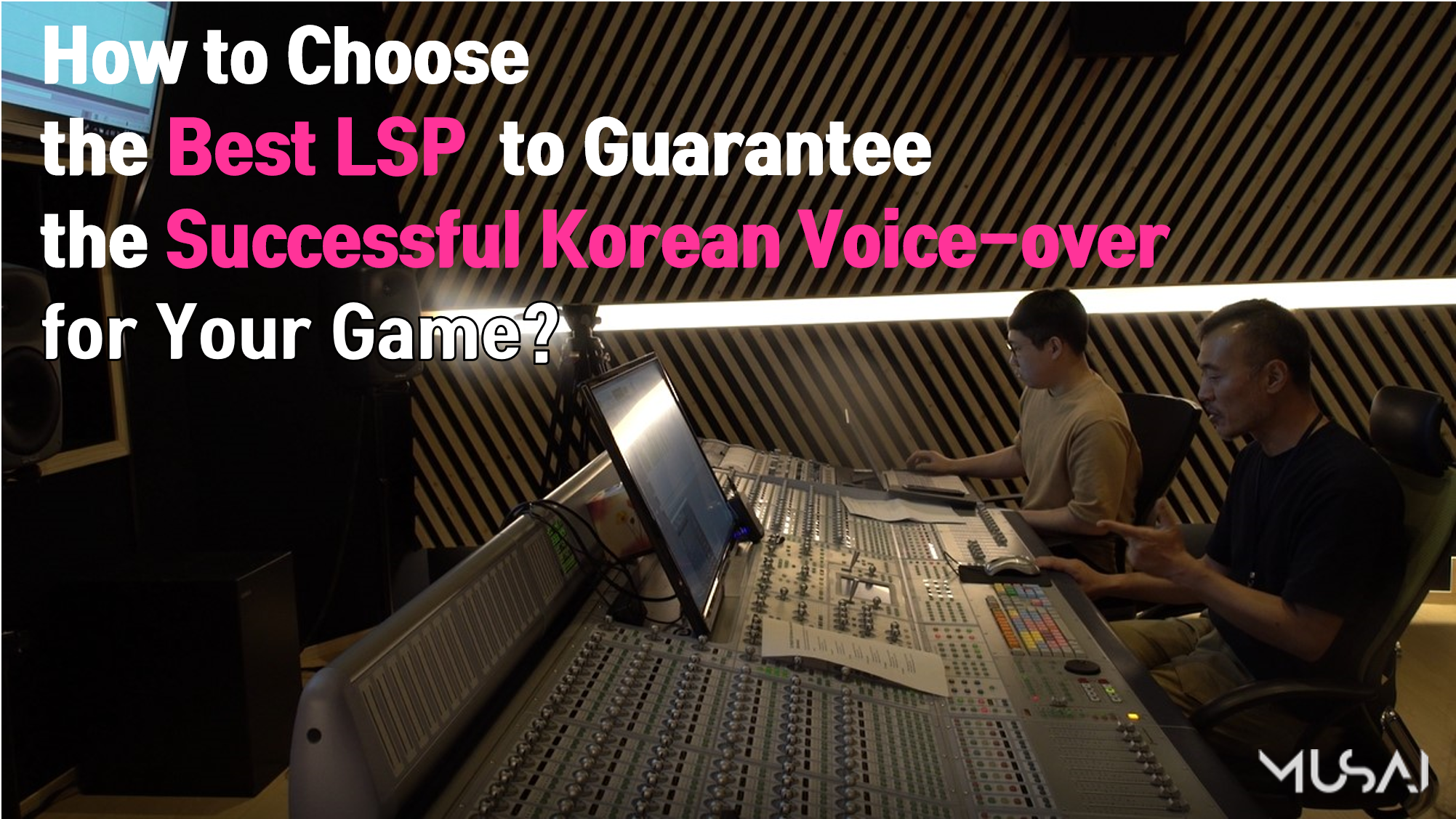
2021-03-12
In the last article, we introduced the increase in the demand of Korean voice-over services and the virtuous cycle that was formed in the market as a result (http://blog.musaistudio.com/musai-the-wind-of-change-starting-from-cyberpunk-2077-blows-through-the-korean-voice-over-industry). Today’s topic will be the companies specializes in localization services and moves in those companies in relation to such structure introduced in the last article, and in the ‘ideal’ criteria for selecting a professional localization service agency.
Let’s refer back to the full game services diagram from last article and start discussing in a broader sense.
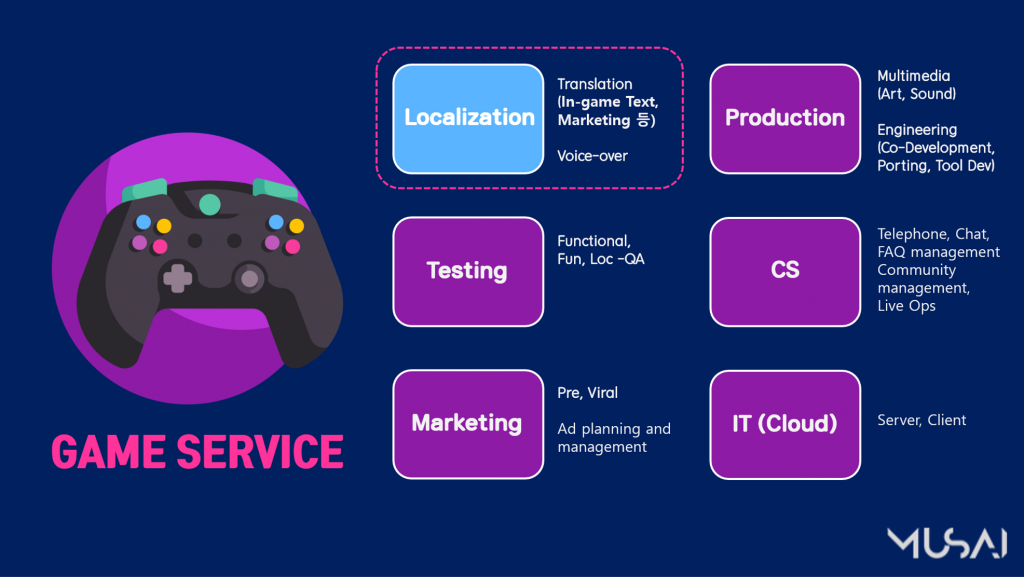
Too Many Language Service Providers; First, Figure Out the Service Types Based on the Roots
There are various areas in game-related services as shown in the diagram. Although many still consider the service as an equal to ‘in-game text localization,’ most of the game-related areas need localization services; not many Language Service Providers, or LSPs, provides in-game text localization service only, because of the close relationship between localization service and other service areas. Furthermore, whether for business expansion or conversely due to the limitations in operating profit, many LSPs provide other services which can bring synergy with their own services.
Limited to the game-related services, LSPs can be categorized as follows:
- Game localization companies expending to other services: in this case, it is easier to expand its services to testing(linguistic), and CS areas.
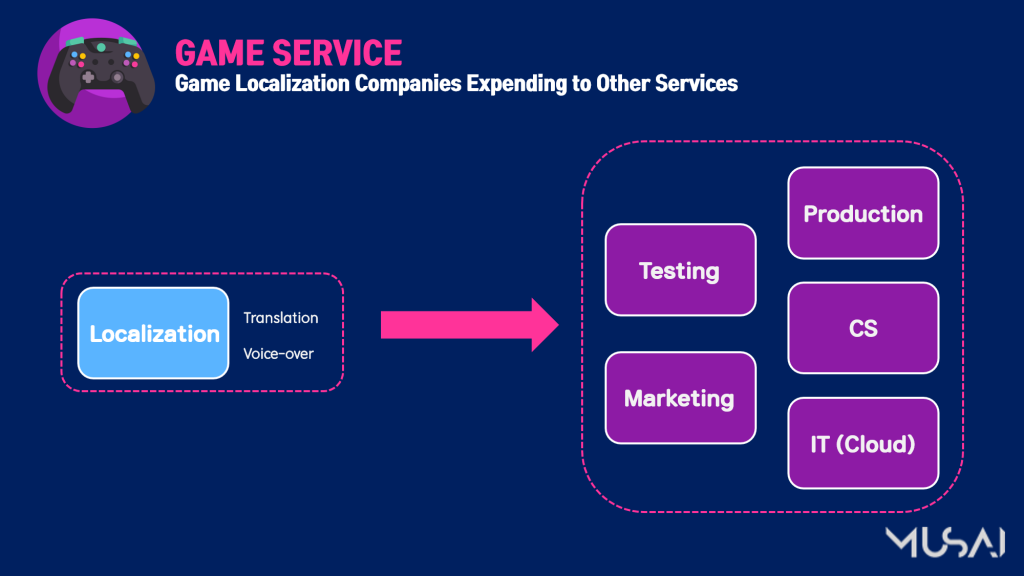
- Extending from other game-related services to translation services: some companies start providing language services to handle client’s requests, not by accessing business feasibility. In these cases, they start projects with a small internal team, and the areas that are difficult to be processed within the company are often handled by outsourcing.
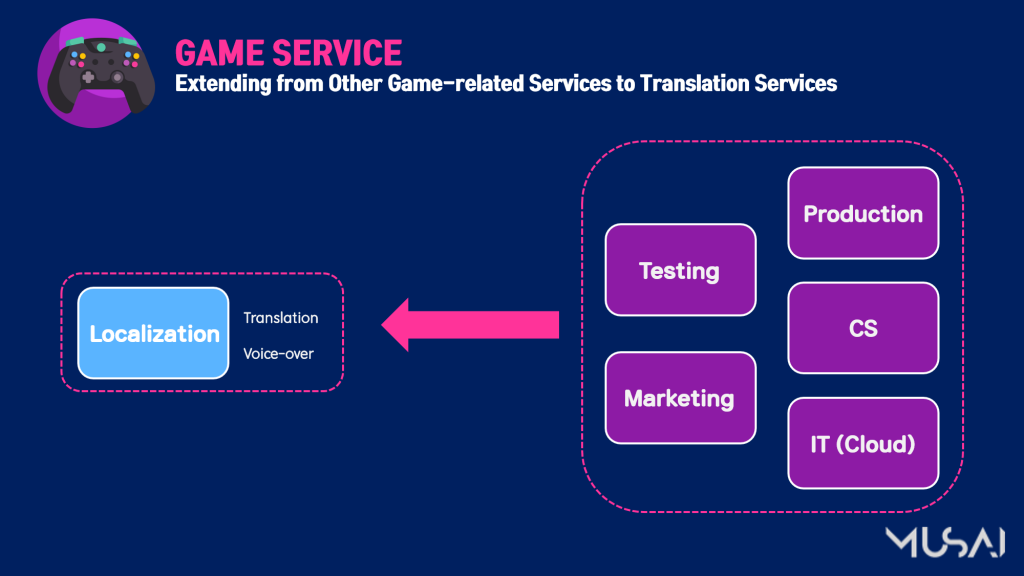
- Start providing translation services via other business or technological structure: there are localization-related platform companies, such as ‘Flitto,’ or other AI-based business vendors. Such service providers do not adopt the traditional localization method, and do not conflict with existing localization companies, thus Will not be discussed any further.
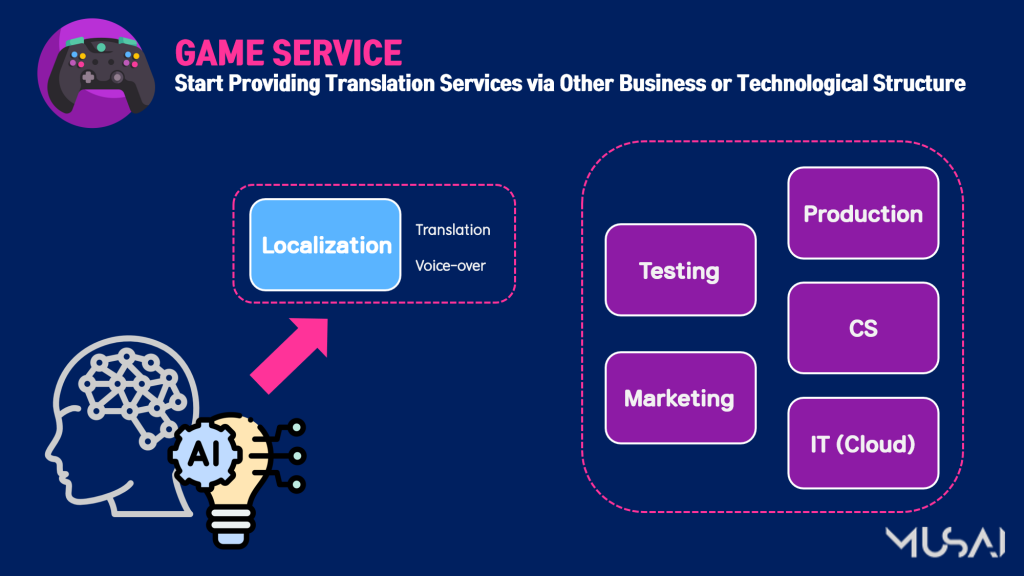
Such classification may bring up a question:
“so, which company is the best?”
Depending on the nature of each projects, the ideal companies for you to select may vary. For example, depending on the areas that you are willing to focus on, whether it is text, vocal, image, or etc., the main services each company provides, and their portfolio must be considered; if you are searching for a service provider for multiple language services, Multi-Language Vender, or MLV, should be considered, and if you are looking for localization services by specific languages, Single-Language Vender will be the most suitable one. Moreover, the number of languages you wish to translate will affect your choice.
Looking into the Audio Localization Service Providers
Let’s narrow down the classification of game-localization companies and look closely into the ‘audio localization’ service providers. As more view Korean audio localization as a factor which is critical to the success of games and the market expands, following changes are expected:
- Existing game translation companies securing recording studios to provide audio localization services.
- Existing recording studios expanding into localization services.
However, it cannot be started by simply building recording booth or hiring a few translators, since both areas require professional knowledge.
For existing game translation companies to build a recording studio, the initial cost burden will be quite large; the cost for securing adequate space, installing recording booth and buying equipment can be surprisingly expensive. In addition, since the number of voice actors, directors, and engineers are limited, the experience in the industry is critical. Therefore, the barrier to enter the business is quite high in various aspects.
On the other hand, in case of recording companies expanding into translation industry, the barrier of entry is comparatively lower; after securing working space, required software, hiring professional personnel, it is ready to start providing translation services. However, the first 2-3 years until the service is stabilized will be a rocky ride, and the operating profit will be low to zero. Rather, it is much likely to be in red since investment costs will be necessary, nonetheless.
Question. We need both audio recording and text translation services. Which LSP should we select?
First, let’s look into the options that are available. If you are focusing on voice-over services, 1) in-game text may be translated internally (if there is an on-site translator in your company) or via external translation companies and do the recording through a professional recording studio or 2) Text localization may be requested to an audio localization company to facilitate contract progress or management.
However, after working on many projects throughout many years, one thing was clear: it is certainly inefficient processing text and audio localization separately. Selecting one company for text localization and another for audio processing just makes the communication steps much complex, and even if every process is sorted out without a glitch, scripts translated without knowledge about dubbing or considering its process simply cannot be used without revision; important factors such as acting and directing are often not taken into account because much time is consumed for the process to modify the script length and into conversational style, or to divide the scripts. As a result, it prolongs the overall time required for the process, inevitably increasing completion period and cost, and decreasing the anticipated quality of the work on the other hand. This is the exact reason that we, Musai Studio has grown into an integrated studio providing both text and audio localization services. (The advantages of an integrated studio are discussed in the article, All about ‘script adaptation’ for Game Dubbing http://blog.musaistudio.com/musai-insight-all-about-script-adaptation-for-game-dubbing)
Processing Text and Audio Localization at the Same Time, Integrated Studio!
Musai Studio, established 20 years ago as a game recording studio, has become the oldest studio in Korea. Our L10n studio, specializing in game text translation started in 2005 as a small team in the company, has been providing localization services to many major domestic and international game publishers for 15 years. Since moving our office into current location, these two studios have been working cooperatively in the same building. We are constantly striving to improve the quality and efficiency by trying various methods, such as the launch of the ‘Script Adaptation Team,’ to fill in the gap between the such distinct areas.
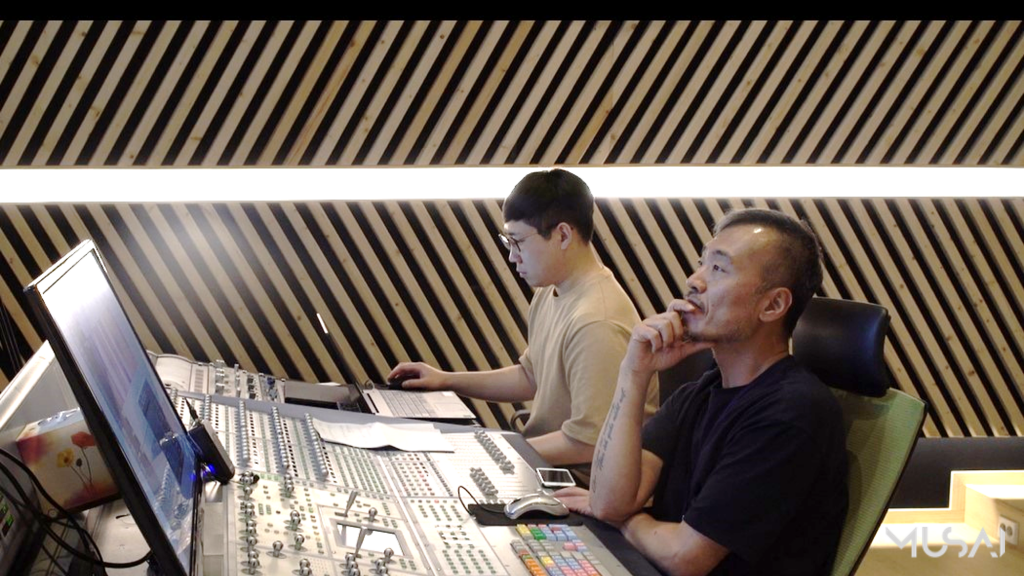
As the scale of audio localization market has grown, the number of factors to be considered prior to launching a game, such as project conditions and necessary services, has been added. In addition, as the market changes, the trends of localization companies are also evolving as we have seen above. Selecting the right vendor in such rapidly changing game industry is not an easy task. However, we hope the criteria presented above may provide some insight and serve as standards and will be of some help upon selecting one.
** Did you enjoy the news of Musai? Please click subscribe and share the story.
BOOST YOUR PLAY! Musai Studio






